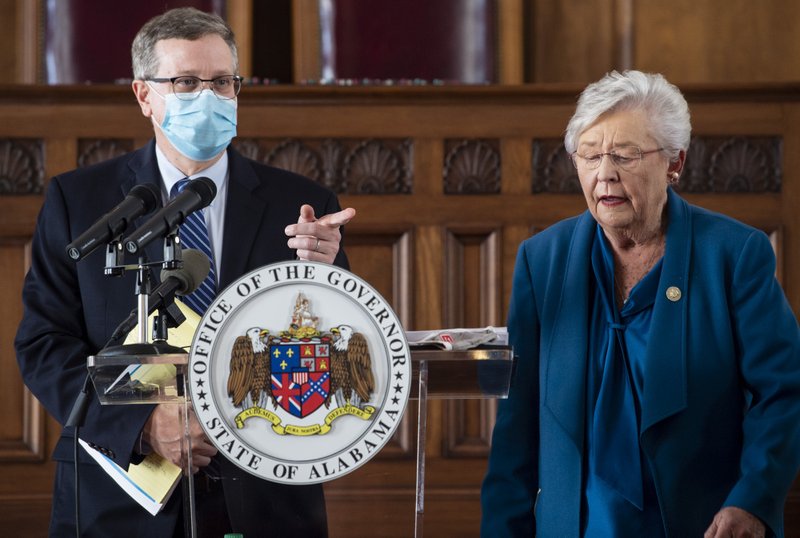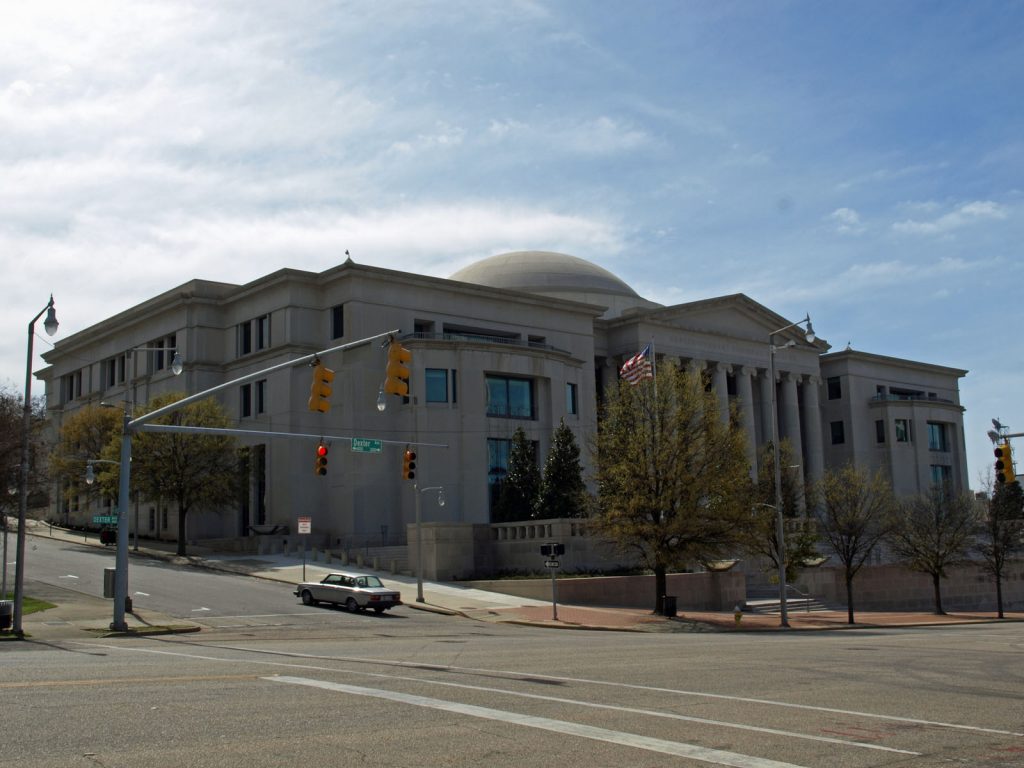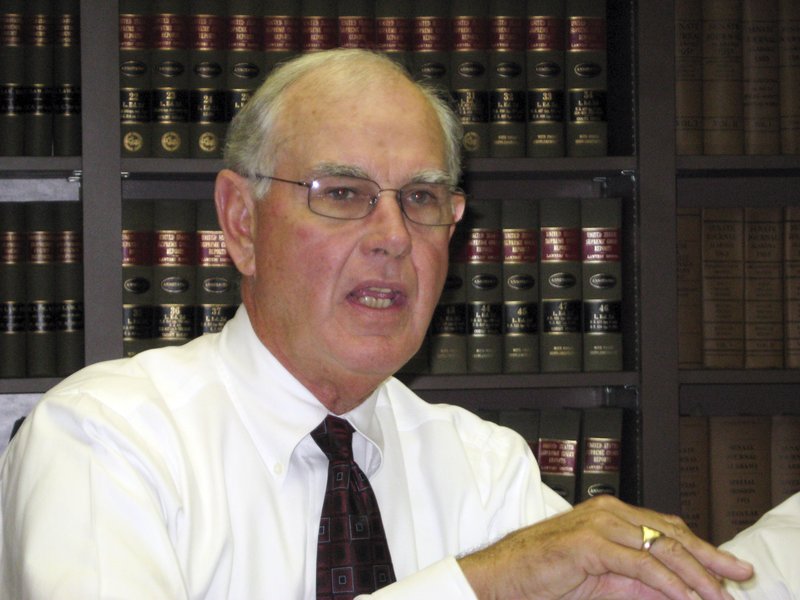Inaugural Black Restaurant Week campaign starts in Alabama this week

Black Restaurant Week, LLC will host its inaugural campaign in Alabama from Friday, December 11 to Sunday, December 20. Founded in 2016 by founder Warren Luckett and co-founders Falayn Ferrell and Derek Robinson, Black Restaurant Week began with a one-city food experience in Houston, Texas. To date, the culinary experience has expanded to eleven markets with involvement from 400 minority businesses and professionals nationwide. According to their website, the group is, “dedicated to celebrating the flavors of African-American, African, and Caribbean cuisine nationwide. Through a series of events and promotional campaigns, Black Restaurant Week’s culinary initiatives help introduce culinary businesses and culinary professionals to the community.” Since 2015, Black Restaurant Week has developed its multi-city culinary movement of community and culture as it relates to supporting black-owned businesses and talent within the food and beverage industries. During Black Restaurant Week in Alabama, foodies, culinary influencers, locals, and guests will be treated to prix fixe brunch, lunch, and dinner menus at participating restaurants within the area. Black Restaurant Week’s impact on the Black culinary community in 2019 included a 25-40% increase in revenue for participating restaurants during each local celebration. This year, in a time of financial uncertainty and with the unfortunate escalation of racial injustice incidents, Black Restaurant Week has waived the financial participation fee for all restaurants. Alabama is recognized as a leading culinary destination; with flavors from the African diaspora making a significant contribution to the local food scene. On behalf of local restaurant owners, executive chefs, and catering companies, Black Restaurant Week savors every moment in highlighting each participant’s legacy. “Supporting the entire culinary industry, from farm to table, is necessary for providing more opportunities for the whole community to thrive,” Luckett stated. “From the increased exposure for black-owned restaurants on our new national website to the professional business guidance gained from the educational events, Black Restaurant Week helps businesses expand its customer base and receive resources for ongoing success.” For more information about Black Restaurant Week, its events, and participating restaurants, please visit: blackrestaurantweeks.com.
Gov. Kay Ivey extends Safer at Home, mandates masks in public, and warns of ‘dark days’ ahead

Pushback from citizens and political leaders alike has led to controversy over mask-wearing in the state of Alabama. Lieutenant Governor Will Ainsworth, who tested positive for the virus in October, has been resistant to continuing a mask order. He has stated that “masks should be voluntary, not mandatory.” With Covid-19 cases higher than they’ve ever been, Governor Kay Ivey issued her twentieth supplemental emergency proclamation extending the Safer at Home Order that includes a statewide mask requirement. Individuals will be required to wear a mask or other facial covering when in public and in close contact with other people. This order extends until Friday, January 22, 2021, at 5:00 p.m. Except for the extension, all guidelines remain the same. “The mask mandate remains the one stop gap in order to keep the balance of our daily lives and maintaining health and safety,” Ivey stated. “We returned to school, to church, and to work under the conditions of simply wearing a mask.” “These are some of our darkest days since COVID-19 became a part of our daily conversations,” Ivey continued. Ivey posted to Twitter, saying, “Y’all, none of this has been easy. As I have done previously, I cannot thank the people of Alabama enough for the sacrifices you are making-sacrifices for yourself and for others.” Y’all, none of this has been easy. As I have done previously, I cannot thank the people of Alabama enough for the sacrifices you are making—sacrifices for yourself and for others. @ALPublicHealth #alpolitics #TogetherAL 1/7 pic.twitter.com/cbmQ4xK96X — Governor Kay Ivey (@GovernorKayIvey) December 9, 2020 State Health Officer Dr. Scott Harris also spoke at the press conference and discussed the new Covid-19 vaccine rollout. Harris said that infections are “out of control” in much of the country. He said the number of COVID-19 deaths in Alabama is equivalent to a 747 jet crash every month for the past 10 months. “We really are in a difficult time right now in Alabama,” he stated. “This is a very challenging time, and we’re looking at some pretty dark days for the foreseeable future.” Harris said the state expects to receive about 41,000 dozes of Pfizer’s vaccine, possibly within the next week. However, only about 15 hospitals have the capability of storing it. Currently, the Pfizer vaccine has a recommended storage temperature conditions of -70°C±10°C for up to 10 days unopened. This requirement means only certain hospitals can be utilized for storage and distribution. “People have sacrificed so much. It’s been such a difficult year for everybody,” Harris stated. “I would say everybody knows someone who’s been sick from this disease, and most of you know someone who’s died from this disease. We still have some tough weeks ahead of us.”
Protected or Prisoner Part 7: Can the Britney Spears case be the tipping point for change within a system rife with abuse?

Policy changes and pop stars – two topics that aren’t frequently discussed together. With the growing spotlight on Britney Spear’s contested conservatorship, that is changing. Many in our nation are getting a first glimpse at a broken system that has ruined lives, drained bank accounts, and destroyed families across the nation. Don’t get me wrong; even Britney will tell you: there’s a time and a place for the court to examine all evidence, hear all sides and make well-informed judgments on the appointment of a trusted and qualified conservator to protect those who cannot protect themselves. It’s been said Britney herself has agreed that her own conservatorship was initially needed. But her lawyer is claiming the situation in her case and, all too often in our own communities, the people who the court claims they are trying to protect actually find themselves prisoners. With Spears’ birthday this week and recent court arguments coming to light, we can all hope there is a tipping point coming. Not only a time for a change in Britney Spears’ case but also a time for state and federal lawmakers to reexamine and fix the problems that have repeatedly been acknowledged by families, national advocates, the Bar Association, and even the Government Accountability Office. The #FreeBritney movement has taken hold and captured the attention of the nation and the world, and my hope is that the same people watching the case unfold come to see the bigger issue – that this is happening in cities and counties in each and every one of their backyards. Multiple petitions to release Britney Spears from her conservatorship have gained the support of hundreds of thousands of people. The Twitter hashtag #FreeBrittney brings up countless tweets in many languages. With Britney’s 39th birthday on Dec. 2, the timeline is currently flooded with warm wishes and messages that include hopes that she will be freed from her conservatorship. Articles can be found in nearly every media outlet across the web. From People, Page 6, and Vanity Fair to more traditional news outlets like CNN, ABC News, and NBC. It seems every outlet is detailing her case. A case that began in 2008 with a temporary order placing Britney under her father James Spears’ control during a mental health crisis is now on year 12, with no discernable end in sight. As Alabama Today reported previously in our second in this series, “The American Bar Association published a study in 2017 on the Restoration of Rights in Adult Guardianship that found, “an unknown number of adults languish under guardianship” when they no longer need it, or never did. The authors wrote that “guardianship is generally permanent, leaving no way out—‘until death do us part.’ ” Earlier this week NPR did a story on conservatorships based on Britney’s case noting that a DOJ study found that there are an estimated 1.3 million people who are involved in conservatorship cases in the U.S. They play the tearful audio of the only time Britney detailed her feelings on her conservatorship publicly. She compared it to a prison sentence but said even then you know when you’re going to get out. She went on to say it was like groundhog day. It was widely reported that during a November hearing, Brittney’s attorney told the court, “My client has informed me that she is afraid of her father.” Going on to say, “She will not perform again if her father is in charge of her career.” ABC News Reports detail how Britney is not only not getting a say in choices that affect her life; her estranged father isn’t even informing her of major decisions and changes that impact her. It is unconscionable that a system designed to protect the vulnerable from being victims is making so many feel victimized and taking away their rights and their voices. The system hasn’t spared us in Alabama or even Jefferson County, AL. either. We’ve had our own share of “egregious” violations of civil rights as well as a lack of transparency and accountability. In the case that spurred months of investigative journalism and this series by Alabama Today, that of Joann Bashinsky (aka Mrs. B), the Alabama Supreme Court issued a scathing rebuke of Judge Alan King’s actions. Actions that others say are commonplace in courtrooms around the state. Emergency orders that went on for long periods of time and wards, or would be wards, left without representation or their voices heard. As reported in the Washington Post the in the case before the Alabama supreme court, “Justices said Bashinsky’s basic due-process rights were egregiously violated when the probate court made the emergency decision without giving her time to obtain counsel after her lawyers were disqualified. The permanent petition remains pending before the court. Joann Bashinsky is the widow of Sloan Y. Bashinsky, Sr. who owned the majority stock in Golden Enterprises, Inc., and who was the founder, chairman, and chief executive officer of Golden Flake Foods. Her personal estate is estimated to be worth $80 million, and her entire estate was valued at $218 million. Is the Bashinsky case unique? No. How many more are like it? We don’t know, but we’re trying to find out. We have heard from others that Judge King was known to put wards under the supervision of his handpicked court-ordered conservators, even when family members were willing and able to fulfill the role. We don’t know how many though. As the Government Accountability Office and other watchdog groups have noted, data on contested conservatorship and/or guardianship cases is mostly unknown. I asked the Jefferson County probate court first in a series of emails and then in an official public record request, a series of questions about how many cases have been processed here in the last several years. My request was first dated June 15, 2020. As of December 7, 2020, I have no answers. The probate office, in the first 48-hours, did provide a litany of excuses for not providing the records. First, they stated they needed
The case against Magic City Acceptance Academy, how the Charter School Commission got it wrong & what the legislature should do

What’s more ironic than the fact that a group who says their entire mission is “anti-bullying” bullied their way into a Charter School commission decision that appears to be invalid if not illegal? If you’re unfamiliar with the school or its proposal, the original charter school application for the Magic City Acceptance Center can be found here, and the amended application submitted in July of 2020 here. The applications specifically state that it will be an “LGBTQ-affirming learning environment” for sixth through twelfth grades or students ages eleven to eighteen. The Alabama Charter School Commission denied the school’s application on May 12, April 23, and again on September 10. The Birmingham City School board also rejected it in January 2020. Four commissioners voted yes during the September vote, three commissioners voted no, and one abstained, denying the charter. The process laid out by the state should have required another application and six months before another vote was held, but that’s not what happened. Instead, on an ordinary meeting notice for November 4, 2020, was an agenda item, “Consideration of Request by Magic City Acceptance Academy.” Note this is different than the notice language that would have been included were the chairman of the board not so insistent he pass the charter without following the Alabama Open Meetings Law. This law requires such boards and commissions to be honest in their agenda. For instance, agendas with votes have always been more specific; the May 12 meeting agenda said, “Vote on the Approval or Denial of Breakthrough Charter School”, and the Sept. 10 meeting agenda specifically said, “to consider whether to approve or deny four charter school applications.” It’s hard to imagine a world where the segregation of students, voluntary or not, based on sexual orientation doesn’t violate Title IV protections. Beyond that, the school appears to violate Alabama’s school choice law itself. The process, however wrong or potentially illegal it was isn’t the only problem, though. The real problems go way beyond the process of getting the school approved or if it is a violation of state and/or federal laws. Here are the simple non-legal arguments against the school: 1) If the problem this school is meant to fix is the exclusion of the LGBT+ community in public schools, then the solution is not to exclude them further and leave those students within the community still in public schools even more alone. 2) If the problem is too much bullying, then in what world is the solution to make or encourage the victim or target move schools? Wouldn’t it be best for everyone to make sure the school and administrators are protecting the students to promote kindness and inclusion? Alabama law already protects students against bullying. In 2009, the legislature passed the Student Harassment Prevention Act. 3) If the concern is the mental health of these students, and yes, depression and anxiety should not be ignored as statistically, it is worse in this population than in that of students who do not identify as LGBTQ+, then why not work harder as a state to provide these much-needed resources to the entire population of students, not just a select few? If a student’s mental illness requires full-time special attention and specialized education to make them feel valued and not suicidal, this is a medical situation that no school, including a charter school, should be handling. Instead, families should seek professional medical care and interventions. 3) The school says it’s for LGBT+ students and their allies. Who defines an ally? What if someone lives in a household that teaches their children to respect one another but also teaches that a child isn’t capable of making a decision about their sexuality or their gender dysphoria until the age of adulthood? What level of support by students and their families is required, and how is it decided? Alabama state law says there can be no test required to get into a charter school. This seems like it’s a set-up or workaround for a test. I’d consider myself an ally to the LGBTQ community. I welcome inclusion and kindness for all. I believe adults fully capable of making decisions for themselves can decide to live however they’d like. However, my adamant opposition to medication or surgery for those under the age of 18, my support of the GIRLS Act, which protects female athletes, and my use of gender-specific scientific language based on biology (aka women have babies and periods) have caused others to decide I’m not a 100% ally. Who’s going to be quizzing the school children, and at what point does having differing views cause you to be kicked out or be unwelcome? 4) What parts of the curriculum will be related to sexuality? The school starts in 6th grade. Rightfully so, no other schools cater to the sexuality of children that young. What will the teachers teach about gender and gender dysphoria or other ideas not founded in science? The number of genders that some in the LGBTQ community embrace and types of sexual orientation is ever-growing (with one site describing 47). How many do they teach at this school that focuses on inclusion and sexuality? But if they were not enough, here are the legal arguments against the school: 1) The meeting where the commission approved the Charter was clearly intended to do so. There’s no reason to doubt that based on the Chair’s prior comments and pushing and the berating of members of the commission. The meeting notice was purposefully deceitful and arguably ran afoul of Alabama’s Open Meetings Act. 2) The authorizing bill specifically states, the authorizer shall not approve an application that includes “admissions requirements for entry.” The school has set an admissions requirement that students be either LGBTQ or an ally to the LGBTQ community. The term ally again having no formal definition, which at best is simply subjective and at worst discriminatory towards those with deeply held religious beliefs. 3) A school based on the affirmation of one’s sexuality or gender
Former Alabama judge sentenced to prison for theft

A former Alabama judge who pleaded guilty to felony ethics and theft charges was sentenced to four years in prison during a hearing Tuesday. Douglas Patterson, who resigned from his job as district judge in Limestone County in July, also was ordered to pay almost $73,000 in restitution, and sheriff’s deputies took him into custody immediately, news outlets reported. After serving his sentence, Patterson must spend six years on supervised probation and could be sentenced to additional time in prison if he fails to comply with its provisions. Patterson, 38, pleaded guilty in October after being indicted last year on charges of financial exploitation, theft, and using his position for personal gain. He was accused of taking more than $47,000 from a juvenile court fund as judge and stealing from the conservatorship account of a disabled person while working as a private attorney. Former Gov. Robert Bentley appointed Patterson to the judgeship in March 2016, and he later ran unopposed and won a six-year term. Republished with the permission of the Associated Press.
‘We messed up’: Ex-state senator warns of virus before death

Before his death from COVID-19 former Alabama state senator, Larry Dixon spoke to his wife of 53 years from his hospital bed and asked her to relay a warning. “Sweetheart, we messed up. We just dropped our guard,” Dr. David Thrasher, a pulmonologist and friend of Dixon’s, recalled him saying. Dixon, 78, died Friday from complications of COVID-19. Thrasher said his longtime friend had been mostly careful but may have contracted the virus after gathering with friends. “Larry has been conscientious with masks, doing everything right, social distancing since March… He made one slip up,” Thrasher said. Dixon met with friends at a local restaurant to catch up, and smoke cigars, a social gathering the friends referred to as “prayer meeting.” Three people at the gathering became ill, Thrasher said. “The last thing he told her was, ’Gaynell, I love you. We’ve got to tell people this is real,” Thrasher said. Thrasher said he is telling his friend’s story with the family’s permission in the hopes that people can learn just how easily the virus can spread at casual gatherings. He said it is also important to seek medical care when they first get sick. Alabama and much of the country is seeing a surge in COVID-19 cases following Thanksgiving gatherings. The state in the last two weeks has set records for the number of cases reported each day and the number of people in state hospitals with COVID-19. The state health department has reported more than 276,000 confirmed and probable virus cases and at least 3,942 confirmed and probable virus deaths in Alabama. While the virus causes only mild or moderate symptoms in most people, it can be deadly for the elderly and people with other serious health problems. The hope generated by the imminent arrival of the vaccine is tempered by what medical officials fear will be unchecked spread before it becomes widely available. “I can see the light at the end of the tunnel, but I can also see the locomotive coming at me,” Thrasher said. “The next four months are going to see more devastation and catastrophic problems with public health than we’ve seen probably since 1918. It is going to be very, very bad.” Dixon was the executive director of the Alabama Board of Medical Examiners from 1981 until his retirement in 2016. A Republican, Dixon was elected to the Alabama House of Representatives in 1978 and the Alabama Senate in 1983. He retired from the Alabama Legislature in 2010. Republished with the permission of the Associated Press.
Joe Biden’s attorney general search is focused on Doug Jones, Merrick Garland

Alabama Sen. Doug Jones and federal appeals court judge Merrick Garland are emerging as the leading contenders to be nominated as President-elect Joe Biden’s attorney general, three people familiar with the matter told The Associated Press. A decision hasn’t been finalized and the dynamics could shift in the coming days as Biden builds out his Cabinet with an eye to ensuring diverse leadership in the top ranks of his administration. But Jones, who lost reelection last month, and Garland, whose Supreme Court nomination was snubbed by Republicans, appear increasingly well-positioned ahead of other rivals. Democrats are particularly concerned about the prospect of Biden nominating former Deputy Attorney General Sally Yates, fearing she could face a difficult confirmation in the Senate because of her role in issues related to the Russia investigation. Biden’s thinking was described by people with knowledge of the presidential transition’s internal thinking who were not authorized to speak publicly. Andrew Bates, a representative for the transition, did not comment for this story. The president-elect is facing pressure to ensure that Black and Latino leaders are prominently positioned in his administration. He selected retired Army Gen. Lloyd Austin this week to become the first Black secretary of defense. Jones, who is white, has had a long-standing personal relationship with Biden dating back to Biden’s first presidential campaign in 1988. The former U.S. attorney prosecuted members of the Ku Klux Klan who were responsible for a 1963 church bombing in Birmingham, Alabama, and later served as the U.S. attorney there from 1997 until 2001. Biden met with civil rights activists on Tuesday to discuss diversity in his Cabinet. The Rev. Al Sharpton, who attended the meeting, encouraged Biden to select a Black attorney general but gave him room to select someone of another race as long as they had a background in civil rights. “I said the least we could have is someone that has a proven civil rights background that’s someone that’s going to handle this heightened racist bigoted atmosphere,” Sharpton told reporters. It’s unclear whether Garland would fit that standard as easily. He is an experienced judge with a reputation for moderation who held senior positions at the Justice Department decades ago, including as a supervisor of the prosecution of the 1995 Oklahoma City bombing. Garland was put forward by President Barack Obama for a seat on the Supreme Court in 2016 following the death of Justice Antonin Scalia, but Republicans refused to hold hearings in the final year of Obama’s term. The vacancy was later filled by Justice Neil Gorsuch during the Trump administration. The incoming attorney general would inherit a Justice Department that has endured a tumultuous four years and would likely need to focus on not only civil rights issues and an overhaul of national policing policies after months of mass protests over the deaths of Black Americans at the hand of law enforcement, but also on concerns from Democrats about politicization of the department in the Trump administration. Biden has said he will not be involved in Justice Department investigative decisions even as some Democrats have openly wished for probes into President Donald Trump and his associates after he leaves office. Supporters of Yates view her nearly 30-year Justice Department career in both Democratic and Republican administrations, and experience ranging from civil rights cases to national security matters, as making her uniquely qualified to lead the department as it looks to move on from the Trump era. Still, Republican senators would be likely to focus a Yates confirmation hearing on her final year at the department, when the FBI closed out the Hillary Clinton email investigation and opened an investigation into whether the Trump campaign was coordinating with Russia, which later morphed into special counsel Robert Mueller’s investigation. Yates has repeatedly discussed both, including before the Senate committee that has oversight of the confirmation process. She has made clear that she disagreed with the way the FBI conducted some of the most heavily scrutinized actions of both investigations, including the decision to hold a press conference about the Clinton probe and then to alert Congress days before the election that it had been reopened. Even so, Republicans would nonetheless press Yates on problems with the Russia probe that were revealed by a Justice Department inspector general investigation, including errors and omissions in applications to surveil a former Trump campaign aide, and about how she would handle a special counsel inquiry focused on the FBI’s actions in that case. Yates has said that she would not have signed off on the surveillance had she known of the problems in the applications. But the appointment of John Durham as a special counsel to review the Russia probe suggests the inquiry is likely to endure into the Biden administration, creating a backward-looking focus for a new attorney general just as Yates would try to turn the page from the issue. Jones would not comment Tuesday on the possibility of a nomination as attorney general. “They have a process and we’ll let that process play,” he told reporters on Capitol Hill. The Biden team has also been considering a number of other potential candidates for the post, including former Justice Department official Lisa Monaco. Republished with the permission of the Associated Press.
Steve Flowers: Donald Trump has a profound legacy in presidential history, especially if you are a conservative American

Presidential historians and most astute national political observers and chroniclers have concluded that the most profound legacy a president can achieve is the appointment of United States Supreme Court Justices. Presidents serve four-year terms. Justices serve for a lifetime. The Supreme Court of the United States is the ultimate final word on law and public policy in the United States. After they are appointed by the president and confirmed by the U.S. Senate, they are impregnable to political whims or influence. They are sovereign and omnipotent. They are treated royally and usually serve on the high tribunal for over two decades or more. Therefore, whether you like Donald J. Trump or not, he has a legacy. Most presidents are fortunate if they are able to name one justice to the court. Trump, over his four-year term, appointed and had confirmed three. If you are a conservative Republican, this feat by President Trump makes him one of the most bulwark conservative presidents in history. He has cemented his legacy forever and changed the judicial philosophy of the court for the next generation. Trump’s three appointments are not only well qualified, polished, distinguished, moderate conservatives, they are also young. Justice Neil Gorsuch is 53. He replaced Justice Anthony Kennedy who retired. Justice Brett Kavanaugh is 55. He replaced arch conservative Justice Antonin Scalia. The most consequential appointment by President Trump is the appointment and confirmation of Justice Amy Coney Barrett. She is only 48 and a solid conservative. Trump’s appointment of Judge Amy Barrett is truly historical. This appointment changed the entire ideology of the court to a solidly six-to-three conservative majority. Barrett’s appointment is the most pivotal block in Trump’s rebuilding of the Court. In the Gorsuch and Kavanaugh appointments, you replaced conservatives with conservatives. In Barrett, you are replacing a woman with a woman, but more importantly, you are replacing one of the most liberal justices in history with potentially one of the most conservative. In addition, at 48 Barrett will preside for the next three decades as will probably Gorsuch and Kavanaugh. Along with these three conservative justices to the Supreme Court, President Donald Trump has been able to appoint nearly 300 federal judges to the lower federal courts throughout America. Trump could not have accomplished this generational change of the court without the advice and consent of a Republican majority United States Senate. The Republican conservative stamp is also indelibly planted on the federal courts in Alabama. Senator Richard Shelby, in congruence with the Trump administration, has completely reshaped Alabama’s federal judiciary with very young, extremely qualified, conservative judges. Speaking of our United States Senators, our Senior Senator Richard Shelby was granted the omnipotent power to select all of our new, young, conservative judges throughout all of our districts – southern, middle and northern – not only because of his power, prestige and seniority but also because he was our only Republican senator. Our Junior U.S. Senate Seat has been held by a national liberal Democrat Doug Jones for the past three years. During his tenure, he toed the Democratic Senate line and wore that hat as the pawn and clone of the Democratic leadership in the Senate. Chuck Schumer told Jones to vote against Judges Brett Kavanaugh and Amy Barrett only because they were conservative Republican appointees. His refusal to even meet with Justice Amy Barrett showed a total lack of class and southern civility and gentlemanly manners. It was also revealed to me that he was angling to appease his liberal Democratic brethren in order to be Joe Biden’s Attorney General. Yes, folks, you heard me right. Do not be surprised if Doug Jones is not the next Attorney General of the United State in the Biden Administration. The bottom line is if you are a conservative American, Donald J. Trump has a profound legacy in presidential history with three conservative appointments to the United States Supreme Court. Steve Flowers is Alabama’s leading political columnist. His weekly column appears in over 60 Alabama newspapers. He served 16 years in the state legislature. Steve may be reached at www.steveflowers.us.


